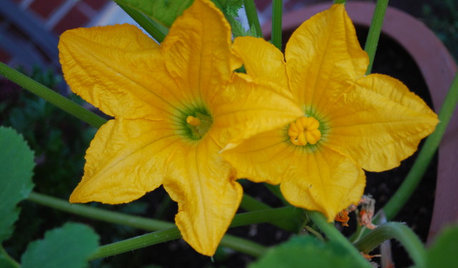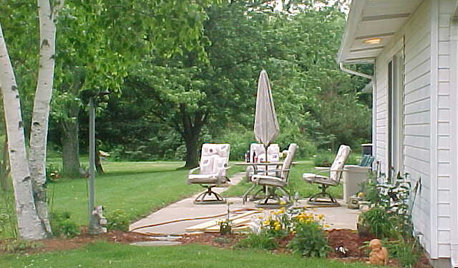Questions about Winter Squash
shebear
14 years ago
Related Stories

EDIBLE GARDENSSummer Crops: How to Grow Squash
Almost foolproof and with cheerful flowers, squash comes in a wide range of varieties to plant in spring
Full Story
ORGANIZINGPre-Storage Checklist: 10 Questions to Ask Yourself Before You Store
Wait, stop. Do you really need to keep that item you’re about to put into storage?
Full Story
GREEN BUILDINGConsidering Concrete Floors? 3 Green-Minded Questions to Ask
Learn what’s in your concrete and about sustainability to make a healthy choice for your home and the earth
Full Story
REMODELING GUIDESConsidering a Fixer-Upper? 15 Questions to Ask First
Learn about the hidden costs and treasures of older homes to avoid budget surprises and accidentally tossing valuable features
Full Story
MOST POPULAR8 Questions to Ask Yourself Before Meeting With Your Designer
Thinking in advance about how you use your space will get your first design consultation off to its best start
Full Story
ARCHITECTURE10 Things to Know About Prefab Homes
Are prefab homes less costly, faster to build and greener than homes constructed onsite? Here are answers to those questions and more
Full Story

REMODELING GUIDESSurvive Your Home Remodel: 11 Must-Ask Questions
Plan ahead to keep minor hassles from turning into major headaches during an extensive renovation
Full Story
Design Dilemmas: 5 Questions for Design Stars
Share Your Design Know-How on the Houzz Questions Board
Full Story
FEEL-GOOD HOMEThe Question That Can Make You Love Your Home More
Change your relationship with your house for the better by focusing on the answer to something designers often ask
Full StorySponsored






iam3killerbs
theonebluegecko
Related Professionals
Cary Landscape Architects & Landscape Designers · Berkeley Heights Landscape Contractors · Braintree Landscape Contractors · Davidson Landscape Contractors · Dunwoody Landscape Contractors · Fuquay-Varina Landscape Contractors · Hannibal Landscape Contractors · Kearny Landscape Contractors · Lantana Landscape Contractors · Las Vegas Landscape Contractors · Middletown Landscape Contractors · Ocoee Landscape Contractors · Pompano Beach Landscape Contractors · Stony Brook Landscape Contractors · Wayland Landscape ContractorsshebearOriginal Author
Macmex
shebearOriginal Author
guile
Macmex
kterlep